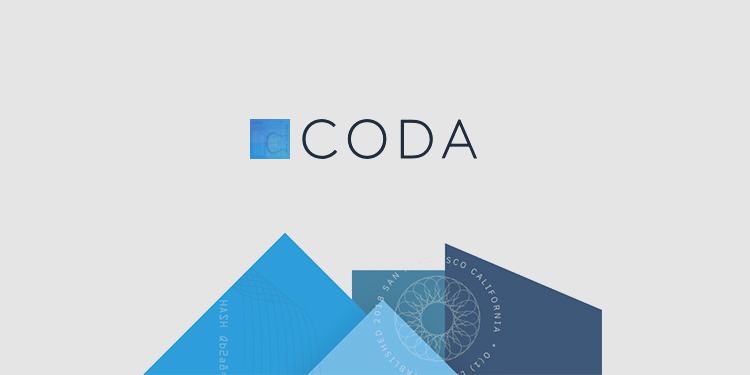Coda Protocol, a cryptocurrency ecosystem with a tiny portable blockchain, is now one of the largest layer 1 testnets by peer count. Phase 3 of the testnet has generated more than 400 users connecting at least once, 300 users signing up to stake, and 143 max concurrent users.
Alongside the release of Phase 3 of the testnet, Coda launched Genesis, a token program that prepares participants to become the network’s first block producers; and ensures high decentralization upon mainnet launch. Coda token grants are being distributed to Genesis founding members, pulling from the pool of participants engaging in testnet challenges that are designed to contribute to greater network resilience. Within weeks of launch, the Coda team received 1.3k applicants wanting to join Genesis; and now have 40 founding members admitted to cohort 1.
“We couldn’t have achieved this milestone of becoming one of the largest testnets by peer count; without the continued support of our dedicated community. The Genesis token program is designed to ensure block producers are operationally prepared for mainnet. We couldn’t be more pleased to have such an outpouring of interest from people hailing from 80 different countries; and we are using this momentum to continue strengthening the protocol and ensure a robust, highly decentralized network at mainnet.”
– Evan Shapiro, Co-Founder of O(1) Labs, the team behind Coda Protocol
The first cohort includes validator teams including Bison Trails, Figment Networks, dsrv labs, and SparkPool.
“Community is blockchain’s killer feature; and Bison Trails is proud to be a Genesis Founding Member, the highest honor in the Coda community. Bootstrapping a community of passionate and active ecosystem contributors is the #1 challenge young protocols face today. Coda is leading the pack with a token-based incentive and engagement model to create a healthy, dynamic community.”
– Viktor Bunin, Protocol Specialist at Bison Trails
Coda Protocol
Unlike other 3rd-generation protocols that offer 1% or less in token distributions to their communities, Coda is allocating up to 6.6% of tokens for Genesis members. Participants also need not wait until an unspecified point in the future to receive their tokens; as the Corda mainnet will be released this year.
These distinctions alongside Coda’s unique approach to solving blockchain’s scalability problem through the deployment of recursive zk-SNARKs; are likely contributing factors explaining the rapidly growing interest in Coda. The team plans to release the next phase of Coda’s testnet in the upcoming few weeks.
Gareth Davies, a full stack developer from British Columbia in Canada and one of the participants admitted to the Genesis token program; was one of the earliest to join Coda’s testnet in July 2019. He expressed, “My favorite thing about Coda is how it utilizes and builds on zk-SNARKs; which is fundamental work that could have a massive impact on the blockchain space and technology in general.”
By harnessing recursive zk-SNARKs; Coda block producers can rapidly share proof of the correct blockchain state across the network and easily update the proof as new transactions occur. This breakthrough application of zero-knowledge proofs is what allows Coda to offer scalability to thousands of transactions per second, millions of users, and years of transaction history without sacrificing security.
